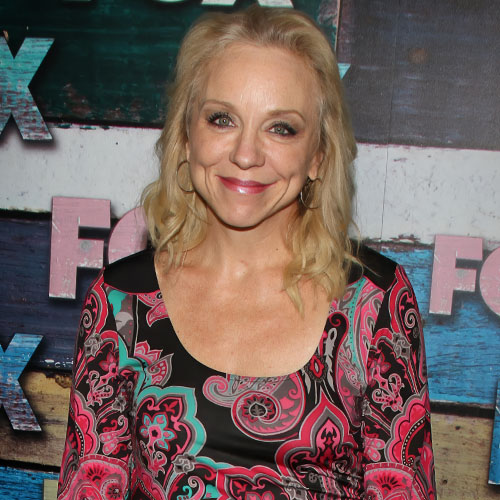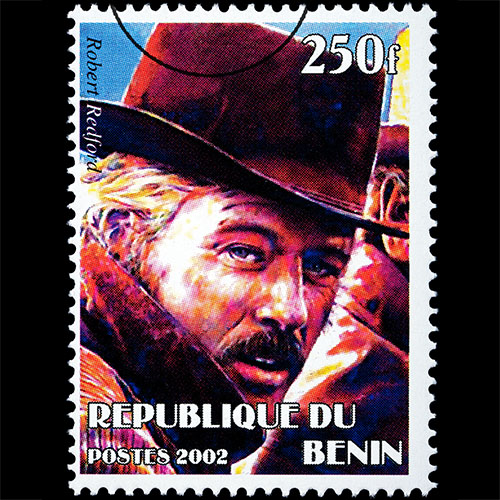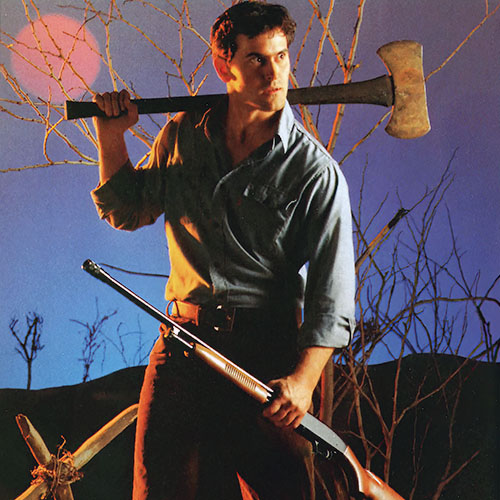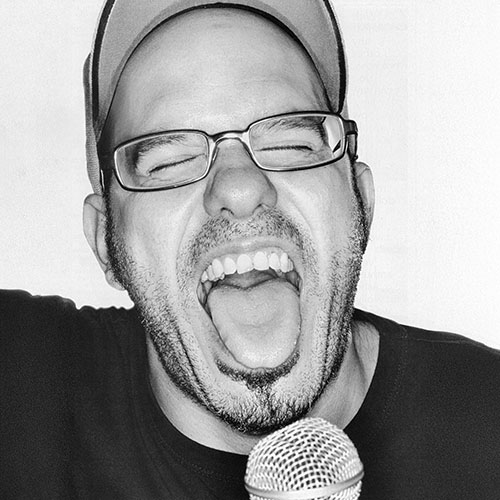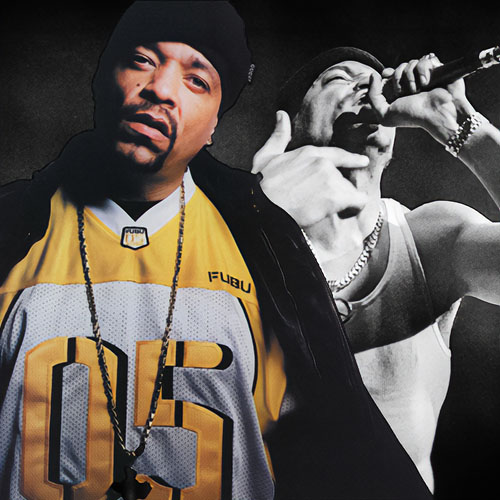British director Ridley Scott has been making commercials and movies — and casting actors in career-defining roles — for 40 years. You may not know his face, but you know his films.
The Talented Mr. Ridley
It’s damn near impossible to pick favorites when it comes to Ridley Scott films, but let us suggest a few fun debates: the gritty futuristic Los Angeles of Blade Runner or the gritty futuristic confining spaceship in Alien — which is scarier? Alien’s ass-kicking risley or the gun-toting feminist heroines of Thelma & Louise — whom are you more afraid to piss off? Hell, throw all five of Russel Crowe’s Scott characters into a cage match. How would Robin Hood fare against Maximus? (We’d be happy to see either one put the beatdown on Body of Lies’ Ed Hoffman.) Who would fin a foot race between G.I. Jane and the female runner in Apple’s 1984 Super Bowl ad? And we haven’t even started to discuss weighing the merits of theatrical/studio versions versus director’s cuts of Gladiator, Alien, and Blade Runner. (Director’s cuts all around — duh.) You could even have some fun imagining the doomed soldiers of Black Hawk Down, with their modern weapons, against the crusaders of Kingdom of Heaven, with their self-righteous religious zeal.
Scott has created some of the most iconic images in modern movies, worked with Hollywood’s biggest stars, directed five actors to Oscar nominations (with one win for Crowe in Gladiator), and become the most successful British director in Hollywood history, in terms of box office. He and his brother Tony — whose directing credits include Top Gun, The Hunger, True Romance, Enemy of the State, and Domino-own RSA Films and Scott Free Productions, a soundstage, and an effects company. Still, Ridley Scott is in filmmaking to be creative, not to be a businessman. He’s hands-on with design, sketching his own storyboards; writing, working with the screenwriters on his projects; and even casting. As he was finishing post-production work on Robin Hood, he talked to Penthouse about career, cinema, and Crowe.
When you get a new script, what attracts you to it?
I rarely get a script that immediately engages me. But if it does engage me and I like it, then I move on the script and usually ask for a page-one rewrite. Alien is the only film I’ve ever made which was shot intact. Since I’m not good as a writer, I like to develop the project and work closely with the writer. That’s partly because I’m distant and pragmatic and need to be able to be amused or not shocked at anything for the 20 weeks that it takes to make a movie.
With that in mind, what attracted you to Robin Hood?
Whether you’re a child who’s eight years old or 45 or older, it’s in our masculine DNA to want to do something heroic. Ask a young kid what he knows about Robin Hood and he’ll tell you that he was a character who robbed from the rich and gave to the poor and he was amazing with a bow and arrow. Robin Hood has lived through centuries as Dudley Do-Right. Having made 1492 and Kingdom of Heaven, I enjoy that period. I would have liked to have been born in the eleventh century.
I would have made an extremely benevolent king, but a lousy serf or peasant. A castle would have been fun for me to live in and explore. [Laughs] Living in a hut with a makeshift roof, especially when it rained, would have been like a remote, uncomfortable location shoot.
Does the world today need a modern Robin Hood?
As much or more as it needs another Batman. I think we — the world at large — can do it all to solve our problems but our ethics are evaporating. We’ve got real minute-by-minute problems, but we can’t get them solved or get to the real nitty-gritty of them since the truth isn’t told by our world leaders because they’re uncomfortable doing so. In my film Body of Lies, Leonardo DiCaprio is kind of doing the right thing-by right I mean ethical. But Russell Crowe, whose government agent is the voice of reason and Leo’s boss, does horrible things because he believes it’s good for survival at present, even if it doesn’t serve the greater good now or in the future. The world seems to be ruled now by one fucking wealthy, powerful political party that only tells the truth in TV sound bites if it suits their political agenda. Robin Hood never had TV to worry about or explain his actions to. I would have enjoyed living in his era, where you’d just string someone up in a tree if their evil deeds warranted it. But I would miss going home afterward and turning on my air conditioner and watching a movie.
What can you tell us about Russell Crowe that the public doesn’t know?
He loves his mother and his family. He’s also one of the guys, someone you’d want to share a meal or a drink with. Russell doesn’t suffer fools or accept any crap. On a set, he arrives thoroughly researched and prepared, and enjoys listening to me even when we disagree because he’s always looking to improve his performance. He’s extremely intelligent, and that shows in everything he does, except sometimes in his dealings with the press.
How do you and Crowe handle your creative differences?
Russell acknowledges I have a good eye and good taste when it comes to the filmmaking process. We’re friends, but he’s a movie star and I’m a director so sometimes, like pets or predators, we need to establish our territory. [Laughs] Russell will love that answer. His strength is behavioral, knowing how to talk his way through a scene that he may be having difficulties with. My ego is such that I’m always open to better ideas [than mine] on the set. After probably a total of four years making movies together, you could say we have a very volatile at times and almost always exciting creative relationship. To his credit, I’ve never had an “I’ll be in my trailer” moment with Russell. I believe we’ve earned each other’s respect.
Why have you made so few erotic or romantic films?
I’m clearly not the director people think of for those kind of movies. I think I covered both those genres well with Someone to Watch Over Me and A Good Year, respectively.
Why are there so few, if any, sex scenes in your films?
What I don’t like about shooting sex scenes or watching them is the rustling of the curtains followed by doves flying away and then the camera slowly panning down naked, nonsweaty, pretty people supposedly having sex but barely moving. To me a real sexy film is Fatal Attraction, which I saw as near perfect entertainment about the power and weaknesses of both sexes …
Please explain that last comment.
Men are always children, aren’t they, when it comes to women. They want their approval at the same time they want to control them. They basically don’t understand that a pretty woman has the power to dominate any room she enters. Let’s face it — beauty is power! Beauty and brains can get a woman everything she ever wants. With the right story I think I’d like to explore these themes in a movie.
Didn’t you use footage from director Stanley Kubrick’s The Shining in the original theatrical version of Blade Runner?
[Laughs] You’ve researched my films wel I. The first Blade Runner preview was hell. The cards the studio people gave out to the paying public were filled with horrible comments like, “We want Philip Marlowe, dude!” Warner Bros. wanted a happy ending. They decided to have Harrison Ford do a relatively cheerful coda over an aerial shot of him and Sean Young driving away to that unknown land of cinema bliss. But there was no time or money to shoot the extra footage. Stanley somehow got involved and gave us the footage we needed from his then-unreleased picture. Stanley sent me 17 hours of footage shot from a helicopter by one of his assistants, who I thought covered all of Montana at his boss’s behest, from people’s assholes to their breakfast. I don’t know how Stanley could look at over 17 hours of the same footage, but he did define the term “perfectionist.” For the minute and a half screen time that I needed, I looked at over a third of what Stanley sent me … and I got a huge headache!
What’s the difference between a Ridley Scott film and a Tony Scott film?
That’s a good question. [Long pause] I think our approach to filmmaking is different. Plus we’re not attracted to the same type of material. Tony’s style is more rock ’n’ roll and mine is more old-fashioned.
This fall Fox is releasing Alien on Blu-ray as part of an Alien anthology. The John Hurt “bellyache” scene has been parodied a lot. What effect did you think the scene would have when you were shooting it?
[Laughs] The “bellyache” scene? I like that. Back then I thought, If this scene doesn’t work, then the movie won’t work. It’s quite complimentary that the film came out in 1979, and we’re still talking about it and its financier [Fox Studios] still believes people will want to buy another format. I’m working with writers on a prequel to Alien. It would deal with why they ended up on that spaceship and deal more with who the characters were. By the way, can you imagine the “bellyache” scene in 3-D? If I make the prequel, I might do it in 3-D. Back when Alien was shot, filmmakers were encouraged by studios and agents to be experimental, push the boundaries of their creativity. Nowadays you’re lucky to find a studio head or development person who, if you mention Alien, doesn’t ask, why did I make a movie about illegal immigrants? This is a very difficult time in Hollywood to be a creative filmmaker who enjoys watching stories unfold, rather than young people playing with toys that the studios hope to merchandise, and their cardboard characters on-screen.
What’s the challenge for you to keep working?
To raise the bar creatively, like Jim Cameron did with Avatar. To do an Alien picture where the characters and their origins are as fascinating as the action and effects. I’d also like to direct a genre film like Sidney Lu met did in the real-life cop drama Prince of the City, which I think is an undiscovered classic, or The Verdict, which is an excellent, mesmerizing film with a great performance by Paul Newman and a perfect ending. It’s a brave new world out there in terms of stories to tell. Because of my competitive nature, which is as high as any superstar athlete’s, I look more to challenging myself in the future projects I direct and my company, Scott Free Films, produces. Despite my ego and because of my success, I look forward to taking more risks in the films I make.


















